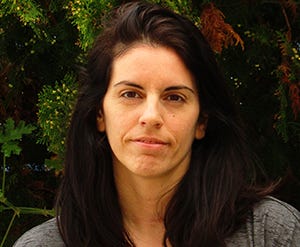A Woman's Role in Space: Exploring Gender Equality Beyond Earth
Written on
Chapter 1: The Pioneering Female Astronauts
In 2020, Christina Hammock Koch made history by returning to Earth after an extraordinary 319-day mission in space, marking the longest duration for any female astronaut. She was also part of the first all-female spacewalk in October 2019. While these achievements deserve recognition, they also highlight a troubling reality. As fellow astronaut Caldwell Dyson pointed out, “As much as it’s worth celebrating the first spacewalk with an all-female team, I think many of us are looking forward to it just being normal.”
Dyson's sentiment resonates deeply. Each time we celebrate the achievements of women in predominantly male fields, it underscores the fact that such accomplishments are often seen as exceptions rather than the standard. Many sectors, including space exploration, remain male-dominated, reflecting a broader societal trend where male figures are frequently portrayed as heroes and saviors.
Section 1.1: The Gender Bias in Space Exploration
Neil Armstrong was the first man to set foot on the moon in 1969, and since that landmark event, a predominance of male astronauts has ventured into space. Recently, however, the rationale for favoring men over women for space missions has come under scrutiny.
Sending men into space has proven less sustainable for various reasons. Biologically, men generate more waste and require more resources to sustain themselves, which poses additional challenges in a space environment. More waste necessitates greater efforts to recycle and manage it, while a higher food intake results in increased weight, complicating launch logistics. Conversely, women, due to their smaller size and differing physiological needs, can be more resource-efficient for space missions.
In the video "A Seat at the Table" Isn't the Solution for Gender Equity | Lilly Singh | TED - YouTube, the speaker discusses the complexities surrounding gender equity and the systemic biases that still exist in various professional fields, including space exploration.
Section 1.2: The Space Suit Dilemma
Despite the clear advantages of sending women into space, historical choices have often excluded them. A notable example occurred in March 2019 when NASA canceled the first all-female spacewalk because of a last-minute spacesuit size issue. There weren't enough medium-sized suits available, and it was revealed that the designs largely catered to male bodies, ignoring the needs of women.
Subsection 1.2.1: Women Astronauts Breaking Barriers
Regardless of these obstacles, women have made significant strides in space exploration. As of March 2021, only 65 women had traveled to space, representing about 11% of all astronauts. The selection of astronauts has frequently been driven by political motivations rather than merit. For instance, during the Cold War, there was a concerted effort to ensure that the first woman in space was not American, reflecting the competitive climate of the era.

Chapter 2: The Future of Women in Space
In the video "A Continuous Quest for Balance: Experiences of Women in the Public Space | Alizée Sourbé," the speaker shares insights into the ongoing challenges women face in various spheres, including public life and exploration, and emphasizes the importance of inclusivity.
The narrative surrounding space exploration often prioritizes male achievements, overshadowing the contributions of women. This bias not only perpetuates inequality but also neglects the significant role women play in procreation, which remains essential for the future of humanity in space.
Despite the ongoing research into the effects of microgravity on reproductive processes, women’s experiences in space are often overlooked. This pattern reflects a broader issue where, despite substantial investments in space exploration, decisions are predominantly made by men, leading to outcomes that fail to consider the perspectives and needs of women.
Irena Ioannou writes from Crete, Greece, and her work has recently appeared in Crannóg and Betty Fedora. She is currently working on her first novel and is a mother of five. Ioannou is the GAZE columnist for the Berlin-based online magazine THE WILD WORD.